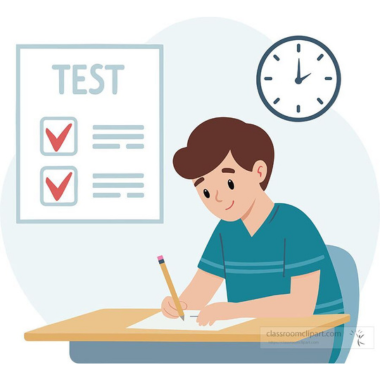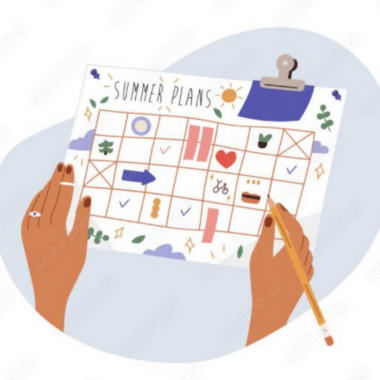Reflecting on Experiential Learning: Why It's So Important
Author: Aditi Sharma, Pre-Health Peer Advisor
As a pre-health student, it can be easy to get bogged down in the checklist of things needed on your application: shadowing, good grades, entrance exams, etc. While all these components are important and should not be overlooked, important skills and insights are gained through experiential learning.
Different than classroom learning, experiential learning is done through involvement in the community or organizations. These can take on a multitude of experiences, including community service, research, or even experiences abroad. It’s no surprise that many of these are important parts of an application for health professional school.
Considering their importance, I thought it might be helpful for myself and others to reflect on the experiences I have been fortunate enough to participate in.
Community Engagement
A hugely important part of being pre-health is demonstrating a commitment to serving
the community. This can be shown in a lot of different ways, but hopefully you choose something that
is a personal interest or passion of yours.
I have found fulfillment in fighting food insecurity by helping local programs that distribute food at no cost to the community. This passion really began when I began work for the Y’s Mobile Food Kitchen back in 2021. The summer program distributes free meals to children in the Lansing area, driving directly to partner sites and eliminating any transportation on the children’s end. During the pandemic, each child would receive enough breakfasts and lunches for 7 days, including fresh fruit and milk.
Involvement in this program for the past 3 summers opened my eyes to the issue of food insecurity, leading me to continue work in the cause by volunteering at local food banks. Both of these experiences have allowed me to combat food insecurity, interact with diverse populations, and engage with the community on an interpersonal level.
Clinical volunteering
Another big piece of the pre-health track is gaining clinical experience.My experience
comes from volunteering, both at Sparrow Hospital and local pediatrician offices.
I have been a volunteer at Sparrow for the past 2 years, working on various units (neurology, cardiology, observation unit, specialty hospital, and breast imaging). While it was tempting for me to stay put in one unit, either for the sake of convenience or comfort, I found that I gained even more insight to patient experiences and healthcare in general by exploring different units.
I was also able to assist with a COVID vaccine clinic for children at a local pediatrician
office. The mix of these settings allowed me to see both inpatient and outpatient
settings, which come with their own set of rules and challenges. Whether it was comforting
a patient who has spent weeks in the hospital or trying to distract a nervous child
before their immunization, I was able to
experience the varied sides of healthcare.
Research
I had always thought that research would be something I had no interest in at all,
but the opportunity presented itself about a year ago. Through work at the Biomarker
Laboratory for Anthropological Research, I have been able to propose, plan, and execute
an exciting research project (which seeks to understand any impact that maternal stress
may have on the immune system of breast milk) in collaboration with Dr. Fujita, an
anthropology professor here at MSU.
I have been fortunate enough to be hands-on throughout the entirety of the project, including proposing a research question, securing funding, gaining approval from ethics committees, designing research protocols, and recruiting participants. With all the preparation work finished, we are now at the most exciting part – data collection! I am leading the participant interviews with the moms and infants, which has been a great learning experience, but also daunting.
I have learned how to multitask, make decisions under pressure, and manage time effectively. I also get the opportunity to work on my skills in the lab, including pipetting, centrifuging, collecting body measurements, and stimulating milk with bacteria. Lastly, a big part of research is sharing the work at conferences or symposiums.
Presenting at these events has sharpened my public speaking skills and ability to answer questions (both of which will serve me well for interviewing). With some big conferences coming up, it will be exciting to share what the results are!
Study abroad
The last piece of my experiential learning comes from my study abroad experience.
I was lucky enough to spend a month last summer in Spain and Italy learning about global food systems and health. I experienced new cultures, ate lots of amazing food, toured historical sites/food facilities, and made 28 new friends with my classmates. This experience pushed me out of my comfort zone and forced me to navigate big personalities and potential conflicts.
I do want to acknowledge that studying abroad is not a realistic option for everyone, but there are still ways for you to gain these experiences closer to home. Try joining a cultural student organization at MSU, venture into a part of town that has different demographics, eat a new cuisine, register for a course outside of your comfort zone, attend a cultural event (I highly recommend MSU’s Global Festival or Powwow of Love), watch documentaries/travel programs, or just make a conscious effort to surround yourself with people from varied backgrounds.
Hopefully you’ve found my reflection on experiential learning to be beneficial in some way. Reflecting on these experiences is something I wish I would've done earlier in my experiential learning journey. Some ideas for you to get started include journaling, making slideshows, or compiling various artifacts/souvenirs from the experiences.
My advice to you is to start the reflection process as early as you can! It will help ground you in why you are choosing to participate in these activities (rather than feeling like you’re just checking boxes) and allow you to document all the skills you are gaining throughout your pre-health journey.



